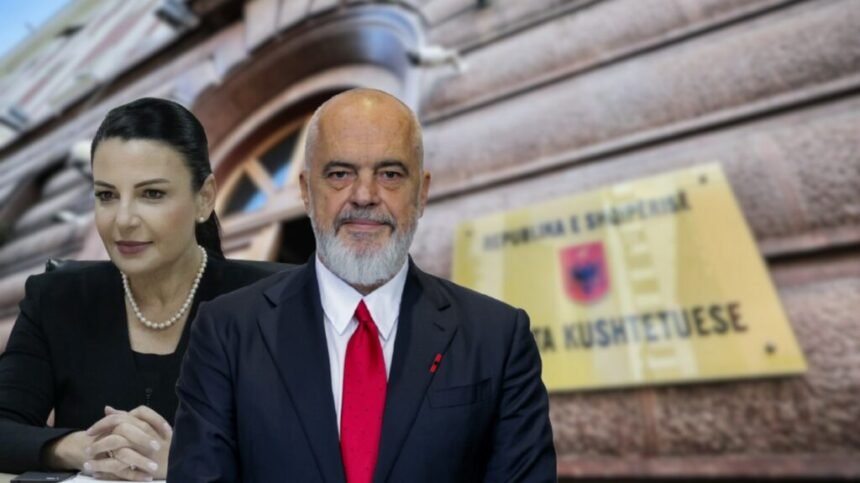The Albanian government has formally submitted a request to the Constitutional Court seeking the review and annulment of a decision by the Special Court Against Corruption and Organized Crime (GJKKO), which suspended Deputy Prime Minister and Minister of Infrastructure and Energy Belinda Balluku from office.
According to the submission, the government argues that the GJKKO ruling has created a conflict of competence between the Prime Minister and the Council of Ministers, on one side, and the special court on the other.
The request—filed on 21 November—sets out four key demands.
Government’s Four Requests to the Constitutional Court
- Resolution of the alleged institutional conflict between the executive branch (Prime Minister and Council of Ministers) and the GJKKO regarding the authority to suspend a member of the Council of Ministers.
- Annulment of decision no. 118, dated 19.11.2025, specifically the part imposing the “suspension from office” on Minister Balluku.
The government argues this violates:- constitutional immunity of cabinet members,
- the separation of powers, and
- the exclusive competence of constitutional bodies responsible for appointing and dismissing ministers.
- Suspension of the effects of the GJKKO decision until the Constitutional Court completes its examination of the case.
- Interpretation of Article 103(3) of the Constitution, clarifying that a member of the Council of Ministers—who enjoys parliamentary immunity—benefits from all procedural guarantees afforded to MPs under constitutional and criminal procedural law.
The case has been assigned to Judge Sandër Beci as rapporteur.
Rama: “We Respect Justice, but Not Decisions That Reveal Weaknesses of a New Power”
Prime Minister Edi Rama stated in a press conference on Friday that while the government respects the work of judicial institutions, it cannot accept decisions that, in his words, reveal the “weaknesses of a new power.”
Rama described the Balluku case as unprecedented in Europe and in former communist countries, stressing that:
“It has never happened that a court and a prosecutor suspend a sitting member of government.”
Background: Suspension Over “Unaza e Madhe” Investigation
The GJKKO decision was issued on 20 November by Judge Erjon Çela, following a request by prosecutor Dritan Prençi.
The measures include:
- Suspension from duty, and
- Travel ban, barring Balluku from leaving the country.
These actions are part of the ongoing investigation into the fourth lot of the “Unaza e Madhe” project, where Balluku is accused of “violation of equality in tender procedures.”







